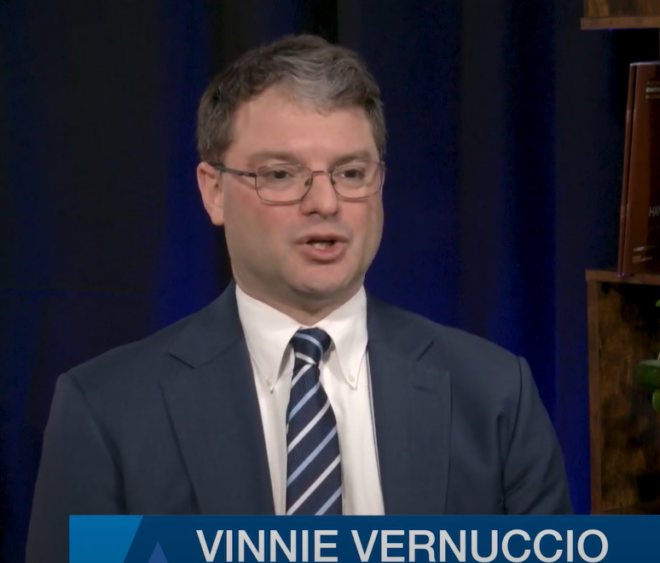Posts tagged Massachusetts
Over 600 workers begin strike at 2 GE Aerospace facilities
September 2, 2025 // The Boeing engine supplier will continue to provide benefits to the striking union members at its sites in Ohio and Kentucky in accordance with the law, according to the company’s website.
Op-ed: Organized Labor Pushes Blue States to Protect Private University Student Workers
September 2, 2025 // Without a quorum at the NLRB, state legislation that codifies collective bargaining for private-sector employees may be key to preserving workers’ rights.
UPS Avoids Teamsters Strike at Largest Air Hub as Union Further Slams Buyouts
August 14, 2025 // The Teamsters alleged that the package delivery company had ignored or delayed answering complaints that they were regularly diverting airport distribution services to workers paid a lower rate. UPS agreed to a new settlement that solved a jurisdictional dispute between two Teamsters local branches at the maintenance center. In Chicago, the union secured a first contract for its administrative and specialist workers at Teamsters Local 705, with the new deal earning the employees the top wage rate for their respective job duties.
We’re Suing to Stop Unions from Stealing from Home Caregivers
August 4, 2025 // This isn’t the first time that Michigan caregivers have been targeted by unions seeking to skim dues off their stipends. Democrats put in place the same unjust policy in 2005, and the Service Employees International Union went on to take an estimated $34 million from home caregivers in just six years, before Republicans repealed it. But this time, caregivers like Tammy hopefully won’t have to wait for a change in power. The courts can protect them.
Concession workers on strike for Dodgers-Red Sox series at Fenway
July 28, 2025 // Hundreds of Aramark workers marched along the street behind the team's right-field concourse before the series opener, carrying round picket signs decorated with red baseball stitching. A giant inflatable rat shared the sidewalk with a statue of Red Sox greats Ted Williams, Bobby Doerr, Dom DiMaggio and Johnny Pesky. Another group of picketers circled behind home plate after the first pitch as Local 26 of the Massachusetts and Rhode Island hotel, casino, airport and food services workers union went on strike at noon Friday. It posted on social media that it is asking for "living wages, guardrails on technology and R-E-S-P-E-C-T!" Editor's Picks Red Sox place Mayer on IL with sprained wrist 2d MLB trade deadline updates, rumors: Bubble teams could shape week ahead 4hESPN It's believed to be the first union walkout in the ballpark's 113-year-history.

The Roadmap To Modernizing Federal Labor Laws: Matt Kittle, F. Vincent Vernuccio
July 20, 2025 // That's one of the main things that we want to see at I4AW. Is workers having a choice in a voice, having. The ability to say who they want to be represented by, how they want their money spent, and how they want to work. And I know we talked about it briefly with the ERA, but the ability for an independent contractor to work for themselves, not be considered an employee, small business owner, to own a franchise, all those things are core to what the flexibility and the entrepreneurship of the modern worker, and those are the concepts that are embraced, you know, not just on the union end of the Employee Rights Act, but on the innovation and entrepreneurial spirit and pro worker end of the ERA.
Republic Services sues Teamsters over alleged actions on picket line as strike passes two week mark
July 17, 2025 // According to the suit, on the first day of the strike, picketers at a Revere facility swarmed a rental car and vans with management and 40 replacement workers, trapping them for three hours. Republic Services alleges that a union official slashed tires on two vans, while others rocked the vehicles and screamed profanities and homophobic slurs. (The suit claims that Revere police on scene took no action in response to the incident. A Revere police spokesperson didn't return a request for comment.) The suit alleges that on another occasion, the same union official spit in the face of a security guard hired by Republic Services. WBUR left messages with the union official seeking comment but did not hear back. The company claimed in the suit that Local 25 President Thomas Mari yelled at Republic General Manager Kenny Runge, words to the effect of “You think this is bad? Wait until we ramp it up."
Gig Drivers Unionize Without Employee Status Under State Plans
July 17, 2025 // Unlike in California, Lyft and Uber remained publicly neutral on the Massachusetts ballot measure and Uber recently vowed to do the same in Illinois. For the companies, the bargaining schemes have the benefit of keeping drivers classified as independent contractors. “As we’ve said for years, we’re willing to work with state legislators on benefit and protection legislation that prioritizes preserving drivers’ independence and flexibility,” said Uber spokesperson Josh Gold.
New York State Looks to Take Over Labor Law Enforcement Amidst Uncertainty at the NLRB
June 26, 2025 // With mounting uncertainty about the lack of a quorum and near term future of the National Labor Relations Board (the “NLRB” or the “Board”), New York State legislators are attempting to usurp the powers delegated to the Board by Congress.
Fenway, MGM concession workers vote to authorize strike
June 17, 2025 // "Boston is a union town, and it's time to bring all Fenway workers' wages up to standard," said Carlos Aramayo, president of UNITE HERE Local 26, which represents the Fenway workers. "Local 26 hotel workers fought for, and won, $10-an-hour raises last year, and Local 26 university dining workers will be making a minimum of $30 an hour by 2028. There's no reason for Fenway workers to be left behind. They deserve raises and respect!"
